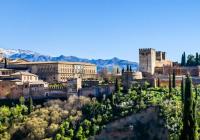
When you buy a Spanish property on a development, there are additional costs to consider on top of your property purchase price. Community fees are very common in Spain, and yet many people buying Spanish property are unaware of them. It’s important to know whether you will need to pay community fees, how much you can expect to pay, and what exactly you are paying for. Many homeowners will also want to know what happens if they don’t pay their community fees. With that in mind, here’s everything you need to know about community fees in Spain:
What are Community Fees?
Community fees are not exclusive to Spain: there are many countries where community fees are commonly charged for property maintenance. Community fees in Spain are the costs paid by owners of properties in shared buildings or complexes, such as apartments, townhouses, and villas. Their primary purpose is to cover the cost of the upkeep and maintenance of any communal spaces within your property. This could include, but is not limited to, gardens and swimming pools, cleaning and lighting. Community fees will also cover insurance and management costs for the building space. These fees are generally paid on a monthly or quarterly basis, although some communities may ask that you pay your fees upfront on an annual basis.
How Much Are Community Fees?
The community fees you should expect to pay will be determined by the size and location of your community, as well as by the number of facilities it offers: a community with a swimming pool is likely to have higher maintenance costs than one without it, for example. Average community fee costs range from 50 to 250 euros per month, but if you are living in a very large or very luxurious property, then you can expect to pay even more than this. If you are buying a property in a community then it is important that you find out what your fees will be and include these in your budget.
Other fees that are often considered to be hidden fees, and that you should consider when purchasing a property in Spain, include: paying annual property taxes (known as IBI or impuesto sobre Bienes Inmuebles in Spain), maintenance costs, and utility bills. The more you research the fees included in owning your chosen Spanish property, the better idea you will have as to whether it will fit into your budget. We also advise that you research the history of the community budget: how often are the fees increased and by how much? These need to be sustainable over time for your lifestyle in your new home to be comfortable.
Who Pays Community Fees?
Not sure if you will need to pay community fees for your Spanish property? Under Spanish law these are compulsory if you live in a community setting and your community requires them. All property owners living within the community development are required to pay them, and exceptions cannot be made. This is why the gardens, access roads and swimming pools in Spanish community settings are so well maintained, and why community settings are so appealing to property hunters.
Before you purchase a property, the details of the fees you will be expected to pay will be provided to you, in a document you will sign to confirm that you accept responsibility for these charges. Occasionally, homeowners choose to stop paying their community fees, falling into debt with their community. It is important to be aware of this, because if there are a large number of debtors within a community then this may result in the other community members ultimately paying higher fees to compensate. You can ask to see the minutes from the community’s most recent Annual General Meeting (AGM) if you’re concerned about the number of debtors, or the financial status, within a community.
What Happens If I Don’t Pay my Community Fees?
Whilst there may be some debtors within each community, there are strong consequences for choosing to stop paying your community fees. Your community can take legal action against you if you don’t resume your payments, and this can result in any of the following consequences:
- Interest and Late Payment Fees: The community of owners can charge interest and late payment fees for any outstanding debt, which can significantly increase the amount owed.
- Legal Fees: If legal action is taken, the owner may be responsible for paying the legal fees associated with the case.
- Embargo and Seizure of Assets: If the debt remains unpaid, the community of owners can request that a judge issue an embargo on the owner's assets or even seize the property to recover the debt.
- Auction of the Property: In extreme cases, the property may be auctioned off to recover the debt.
Who Sets the Community Fees?
Community fees in Spain are generally set by the community of owners themselves. This is a group composed of all the owners of the properties in a particular building or complex. It is the community of owners that is responsible for the maintenance of the property, and the amount charged is usually determined by a community vote on an annual basis. The amount of the fees is based on the estimated expenses for maintaining the common areas and providing services to the owners, such as security, cleaning, and maintenance. These costs are then divided between the number of owners in the community, giving you a fair figure for each homeowners community fees.
Often community fees will also include a reserve fund. This means that the community will have the money they need to cover any unexpected costs, such as emergency repairs. This may slightly increase the annual community fee that you pay.
How Are Community Fees in Spain Regulated?
Communities cannot set fees that are unsustainably high, as these fees are protected under Spanish law.The Horizontal Property Law (Ley de Propiedad Horizontal) is a law in Spain that governs the ownership, administration, and management of properties that are divided into multiple units or lots. This is according to the Law 49/1960 of July 21.
This law determines the framework for creating a community of owners and sets out what the obligations for owners and the wider community are. The Horizontal Property Law is intended to promote harmonious and efficient communal living, by providing a clear legal framework for the management and administration of properties with multiple owners.
Are you thinking of moving to Spain? Looking to escape the cold and rainy weather in the UK and make an escape to the sun? Then why not get in touch with Right Casa, trusted and experienced Costa Del Sol estate agents who are perfectly placed to help you find the Spanish property of your dreams. We’re excited to help you make your next move your best move!

 English
English Español
Español Deutsch
Deutsch Français
Français Svenska
Svenska Nederlands
Nederlands Italiano
Italiano Norsk
Norsk Русский
Русский

































